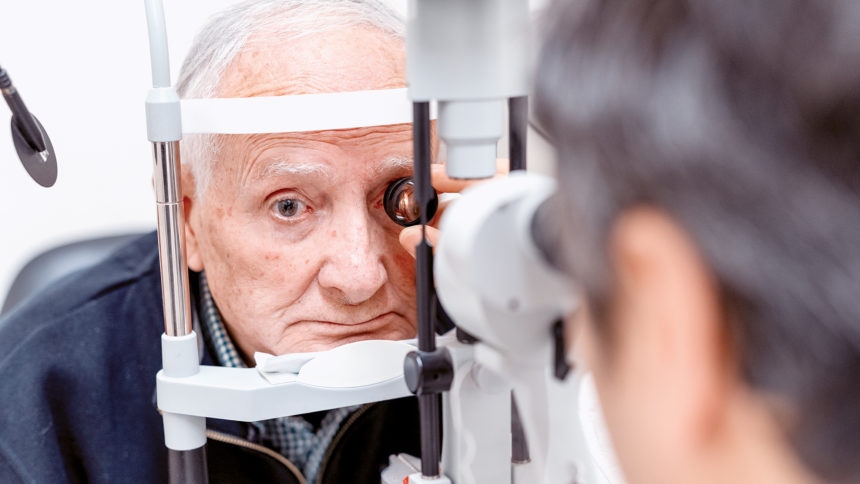
A new device, implanted directly into the eye, may mean fewer visits to the doctor and better eye health for those with age-related macular degeneration.
People with age-related macular degeneration may need to visit a doctor every four-to-six weeks for therapeutic injections to slow or halt loss of vision. Missed appointments can result in disease progression. A new port delivery system, implanted through a tiny incision in the eye to continuously deliver medication, may reduce those clinic visits and improve compliance, according to a recent study of the device.
About 8 million adults aged 50 and over in the United States have age-related macular degeneration, an incurable disease. The advanced stage causes blindness in 1.75 million Americans, and proper treatment is crucial. “Missed appointments, which are common, can lead to an irreversible decline in vision,” explained Peter Campochiaro, M.D., ophthalmologist, who led the research team. “This study shows that the implant is safe and effective, and may only require a clinic visit and refill every six months.”
The researchers followed 220 patients with advanced disease, ranging in age from 50 to 92, after each had a reservoir implanted in one eye. The participants were grouped by amount of medication injected into their device or placed in a placebo group. For nine to 36 months, they were evaluated by an ophthalmologist for severity of retinal swelling, vision acuity and development of new macular bleeding.
The port delivery system was well tolerated, and showed the ability to help maintain patient vision, the researchers wrote. About 80% of patients whose implants carried the largest amount of medication per milliliter went beyond six months before needing a refill, they reported.
Larger studies are needed before the device can become commercially available, Campochiaro said.
Read the study




